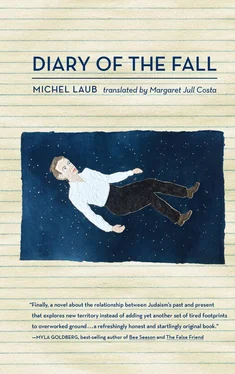8.
Sesefredo — guesthouse in the center of Porto Alegre, a clean spacious establishment, quiet in the mornings and cozy and welcoming when night falls, located in a building that is perfectly solid despite having survived afire and that has a pleasant aspect to the sun, located in a street full of commercial establishments of unimpeachable reputation such as a kennel and a butcher’s shop. Any guest of the Sesefredo who falls ill is sure to be well treated thanks to its owners’ kindness, which manifests itself in their sympathetic, cordial manners, in German, and with a rigorous attention to hygiene during the period in which, due to his need for healthful repose, he cannot be disturbed while alone in his room .
9.
Kennel — a place of long, brightly lit corridors run by professionals of the highest human and social caliber and where the animals are treated according to the most rigorous and humane of hygiene regimes. Anyone visiting the kennel will be provided with all the information he requires on the health of the animals as well as their legal position and the necessary adoption procedures and he can enjoy the small lawned courtyard and the wooden bench where a man who wants to sit there alone will be undisturbed by the noise of barking or other disagreeable sounds .
10.
Pregnancy — condition in which the wife spends entire months without a single illness and in no danger of diseases of the uterus or of high blood pressure. The wife learns she is pregnant and immediately tells her husband so that he can take the necessary decision: to have the child or not? A decision taken by him without hesitation because it crowns the expectation of a new life that has long been planned by him, his profound desire for continuity and a loving, giving relationship. His wife’s pregnancy is observed with joy on his part and accompanied by him with diligence and love, confirming the good luck he has always enjoyed in life. During the wife’s pregnancy, she is directed by the doctor and by her husband to apply the most rigorous hygiene procedures during the pregnancy, making due use in the home of alcohol and disinfectant, laundry soap, brooms, mops and various kinds of cloth. The wife’s sole preoccupation during the pregnancy should be to ensure that her husband is given the necessary peace and quiet when he wishes to remain alone in his room or study .
11.
My father told me about the notebooks in the conversation we had after the fight, when I was thirteen. Up until then, he had kept them a secret, ashamed to show me or anyone else the proof that my grandfather had spent his final years in the manner one would expect of someone writing those entries — the period when my grandfather would allow no one to enter the study where he spent all day, the endless days necessary to complete what he must originally have intended to be far more than those sixteen volumes, and I can imagine my grandfather planning to create an entire encyclopedia, as the world should be , relating each line of each page of each of the far more than sixteen volumes to the fact that he needed and wanted and could now only bear to be alone, with my grandmother having to leave his food outside the study door, and my father was surprised once to see how long my grandfather’s beard had grown, and my father would often hear him talking to himself, and once my grandfather started shouting so loudly that my grandmother summoned two nurses and, from then on, my grandfather had to take medication, which didn’t make a great deal of difference, apart from stopping the shouting, because he continued to spend all his time alone.
12.
My grandfather never talked about Auschwitz, and so my father had no option but to plunge into Primo Levi’s description of it: the men who steal soup from each other in Auschwitz, the men who pee as they run because they don’t have permission to go to the toilet during the working day in Auschwitz, the men who share their bed with other men and sleep with their face next to the feet of those other men and just hope that the latter haven’t trodden on the same floor as the men suffering from dysentery, and Primo Levi’s ability to bring home to us what it felt like to wake up and get dressed and look out at the snow on the first day of a winter that would last seven months and during which you would work fifteen-hour days with the water up to your knees, carrying sacks of chemical material, all of which helped my father to explain my grandfather’s final years. It’s easier to blame Auschwitz than to accept what happened to my grandfather. It’s easier to blame Auschwitz than to submit oneself to a painful exercise, which is what any child in my father’s position would do: seeing my grandfather not as victim, not as a grain of sand crushed by history, which would automatically make my father another grain of sand at the mercy of that same history, and there is nothing easier than to feel almost proud to be that grain of sand, the one that survived the inferno and is here among us to tell the tale, as if my father were my grandfather and my grandfather were Primo Levi and the testimony of my father and my grandfather were the same as Primo Levi’s testimony — seeing my grandfather not as a victim, but as a man and a husband and a father, who should be judged just like any other man or husband or father.
13.
The best way to judge my father is to think of him as he was after the fight, when I was thirteen, after he told me about my grandfather and the notebooks and stopped talking about what might happen in a school where there were no Jews. It’s odd that he should have spent so much time insisting on this while I was at the previous school, where there was no threat at all, and to have stopped doing so precisely when I started going to the new school, where it wasn’t uncommon for me to find a piece of paper in my backpack bearing a drawing of Hitler. It isn’t hard to draw Hitler, and if you were to compare the writing and drawing in the pieces of work we sometimes did in class, you might even find out who the artist was, although it may be that there was more than one artist, because the mustache was sometimes a succession of parallel lines and sometimes a smudge of dots, and the cap might have a short peak or look more like a chef’s hat, and the swastika could have thick, painted arms or be more like the stick men drawn by a child, but it didn’t matter who the artist or artists were or if the artist or artists knew what the drawings meant because my one question was this: did João in some way know or participate or had he even been the brains behind the plan to give me those drawings?
14.
The eighth grade ended in December, a month in which Porto Alegre is a swamp of heat and humidity, and then it’s straight into all the hype about Christmas and New Year, which we usually spent at the beach. I had already begun to drink secretly: on Fridays, my father and mother always went out for the evening together, and I would go to the cupboard, pour myself some whisky and then retreat to my bedroom to watch some trashy TV program until I fell asleep. It was more or less the same at the beach, except that I had a few summer friends, who at the time had got into the habit of buying cachaça and mixing it with soda and orange Fanta, and I can remember walking through the center of town and seeing Uruguayans playing flutes, stalls selling fritters, or pot-bellied children selling handicrafts, ten o’clock at night and my skin still sticky with salt before going to the cinema to watch a double bill of kung fu and porn, a doorman who never asked how old we were and four hours spent in the dark watching a Chinaman defeating all his opponents one by one followed by a housewife who welcomed with open arms the postman and the gas delivery man and the swimming pool cleaner, the California sun and smiling California people preaching free love almost half a century after Auschwitz, and the fact that my father had never again mentioned Auschwitz meant that he understood this was something I had to go through alone, me at the cinema with my summer friends who, a few days later, would take me to a brothel where a lady bearing no resemblance to the California housewife welcomed us one by one, and I was the last, and the room was lit by a table lamp, and the air was hot and heavy with effort, and the lady asked me to take off my clothes and lie down beside her and she let me cover myself with the thin sheet that my summer friends had already used almost half a century after Auschwitz, and I moved closer to the lady and tried not to think that this was another test, and that I had spent weeks preparing for it, and had drunk four glasses of cachaça because of it, and that from then on things might be different.
Читать дальше












